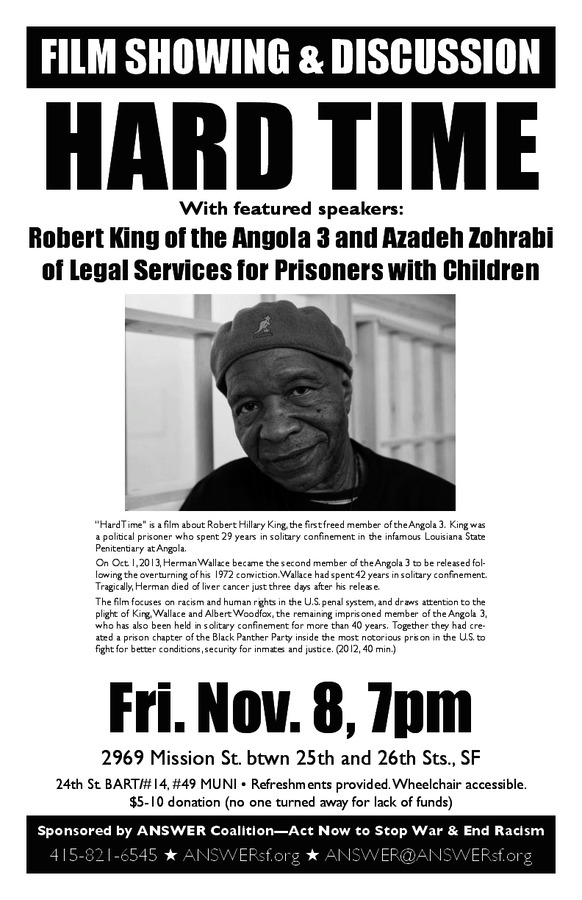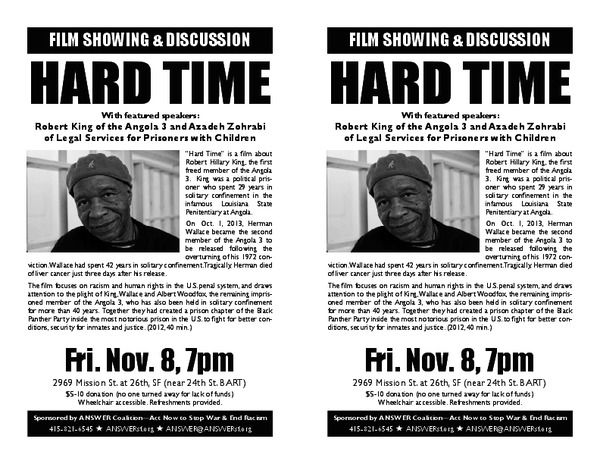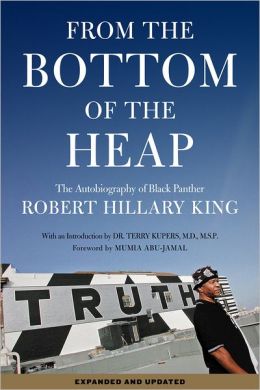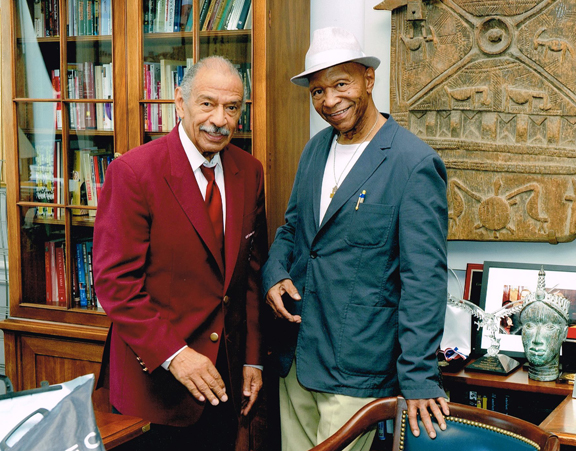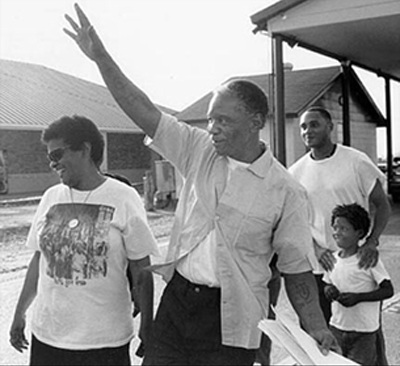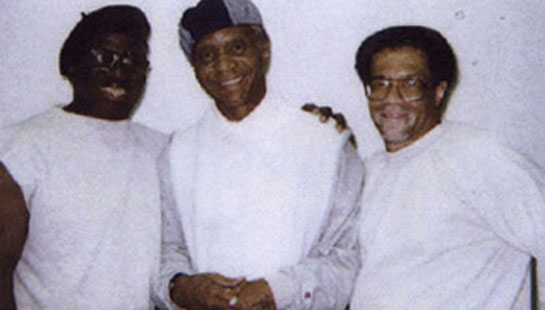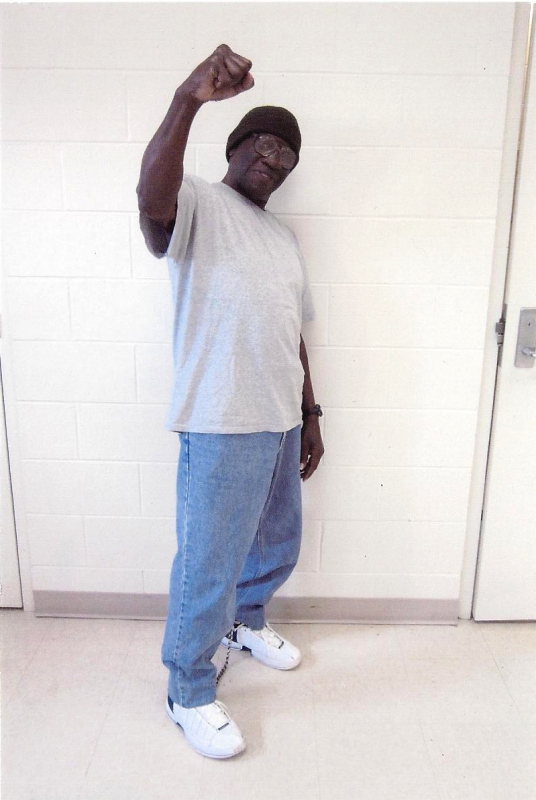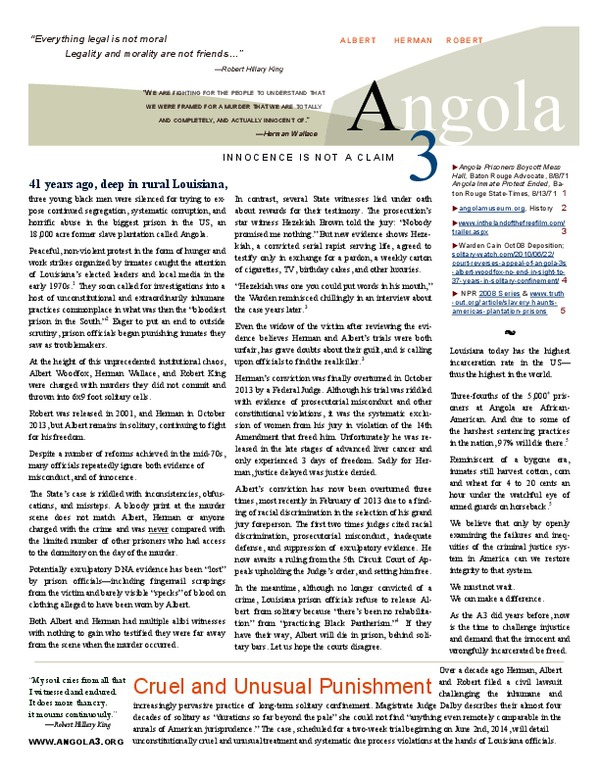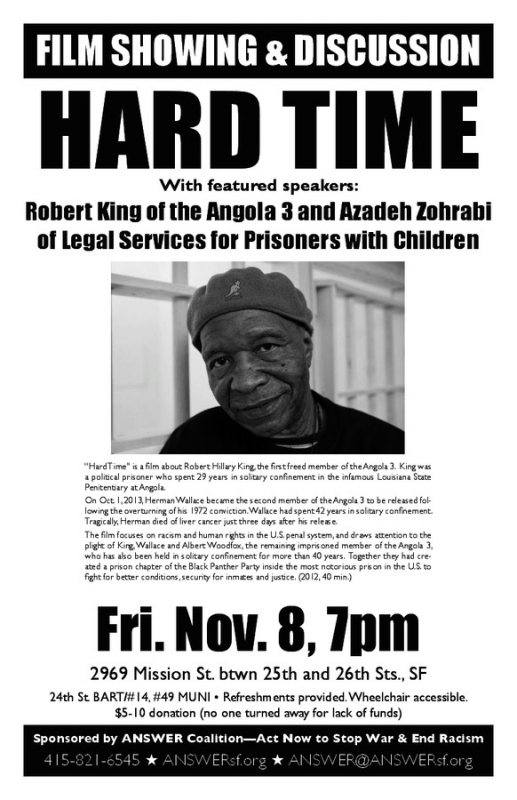From the Open-Publishing Calendar
From the Open-Publishing Newswire
Indybay Feature
Film Showing of "Hard Time" on prisoner rights w/ speaker Robert King of Angola 3
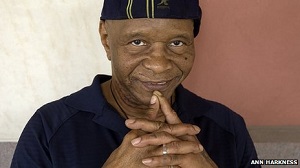
Date:
Friday, November 08, 2013
Time:
7:00 PM
-
9:00 PM
Event Type:
Speaker
Organizer/Author:
ANSWER Coalition
Email:
Phone:
415-821-6545
Location Details:
2969 Mission St. between 25th and 26th Sts.
near 24th St. BART; #14, 49 MUNI
near 24th St. BART; #14, 49 MUNI
Featured speakers: Robert King of the Angola 3 and Azadeh Zohrabi of Legal Services for Prisoners with Children and a Soros Fellow for her work on solitary
"Hard Time" is a film about Robert Hillary King, the only freed member of the Angola 3. King was a political prisoner who spent 29 years in solitary confinement in the infamous Louisiana State Penitentiary at Angola. The film focuses on racism and human rights in the U.S. penal system, and draws attention to the plight of Herman Wallace and Albert Woodfox, the other members of the Angola 3, who have been held in solitary confinement for more than 40 years. Together they formed they created a prison chapter of the Black Panther Party to fight for better conditions, security for inmates and justice behind bars. (2012, 40 min.)
Watch the trailer.
http://vimeo.com/59089471
$5-10 donation (no one turned away for lack of funds)
Wheelchair accessible. Refreshments provided.
More info: http://www.angola3.org
"Hard Time" is a film about Robert Hillary King, the only freed member of the Angola 3. King was a political prisoner who spent 29 years in solitary confinement in the infamous Louisiana State Penitentiary at Angola. The film focuses on racism and human rights in the U.S. penal system, and draws attention to the plight of Herman Wallace and Albert Woodfox, the other members of the Angola 3, who have been held in solitary confinement for more than 40 years. Together they formed they created a prison chapter of the Black Panther Party to fight for better conditions, security for inmates and justice behind bars. (2012, 40 min.)
Watch the trailer.
http://vimeo.com/59089471
$5-10 donation (no one turned away for lack of funds)
Wheelchair accessible. Refreshments provided.
More info: http://www.angola3.org
For more information:
http://www.ANSWERsf.org
Added to the calendar on Wed, Oct 2, 2013 10:37AM
Add Your Comments
We are 100% volunteer and depend on your participation to sustain our efforts!
Get Involved
If you'd like to help with maintaining or developing the website, contact us.
Publish
Publish your stories and upcoming events on Indybay.
Topics
More
Search Indybay's Archives
Advanced Search
►
▼
IMC Network


